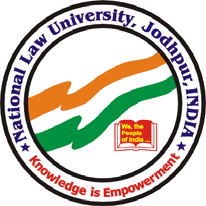 Deadline
Open Deadline
Deadline
Open Deadline
Details of the Organization
National Law University Jodhpur (NLUJ) is one of India's leading Law Schools situated at the vibrant and colourful city of Jodhpur, Rajasthan. NLUJ has constantly been ranked as one of the top law schools in India. Since its establishment in 1999, NLUJ has endeavoured to produce exceptional lawyers and legal scholars aimed at pushing and challenging the existing boundaries of knowledge.
Details of the Blog/Paper
The Journal of Intellectual Property Studies is a bi-annual student-edited, double-blind peer-reviewed academic journal published by National Law University, Jodhpur. The Journal was established in 2017 and primarily deals with contemporary developments in the field of intellectual property and related laws. The Journal subjects all articles to a rigorous peer-review process prior to publication. The Journal also benefits from the guidance of its illustrious Board of Advisors who help the Journal attain its objectives. The Journal stands by the ideals of open access to scholarly works, the Journal will be published online and made available for everyone to read and cite freely.
Upon offer of publication of a manuscript by the Journal, authors shall communicate to the Editorial Board their acceptance of the following terms and conditions:
- The work shall become the property of the Journal.
- Authors may republish their work in another publication subject to prior permission from the Journal and in compliance with specific instructions issued by the Editorial Board.
- All material published in the Journal shall be licensed under a Creative Commons Attribution 4.0 International License (CC BY 4.0).
Types of Submission and Word Limit
Author(s)
- Each manuscript may have up to two authors.
- In case of joint authorship, the author from whom a submission is solicited by the Editorial Board shall intimate the Board of the name, credentials, and contact details of the intended co-author.
Manuscripts
The body of the manuscripts shall not contain or disclose any information pertaining to the author’s name, affiliation, or credentials.
The Journal accepts the following kinds of submissions –
- Long Articles (6,000 - 10,000 words): Submissions should provide a comprehensive coverage of the available literature on the concerned topic and a novel perspective on the related issue with suggestions.
- Essays (4,000 - 6,000 words): Submissions should be relatively shorter and more focused in their treatment of the subject matter. Essays generally pertain to a narrower topic as compared to Long Articles.
- Case Comment (up to 5,000 words): Submissions should provide a critical analysis of significant case laws. Case comments must be accompanied by an abstract of 150-200 words.
- Legislative Comment (1000- 3000 words): Submissions should provide a comprehensive analysis of recent legislative developments. Legislative comments must be accompanied by an abstract of 150-200 words.
While authors are required to adhere to the prescribed word limits, departures from the same will be considered on a case-by-case basis.
Submission Guidelines
- The Journal accepts submissions on a rolling basis. Issues are published bi-annually in March and September respectively.
- All manuscripts must necessarily be accompanied by an abstract of 250-300 words for articles and 150-200 words for case or legislative comments explaining the main idea, the objective of the article/ case comment, and the conclusions drawn from it. Submissions made without an abstract shall be outrightly rejected.
- Authors shall be informed of the status of their manuscripts as they pass through each stage of review.
- The Journal follows a comprehensive double-blind peer review procedure.
- The Editorial Board retains complete discretion over the acceptance/rejection of manuscripts.
- The Journal reserves the right to request copies of any resources or authorities cited in the manuscript.
Formatting Guidelines
- All relevant sources shall be duly acknowledged as footnotes.
- The text and citation styles shall conform to the rules prescribed in The Bluebook: A Uniform System of Citation (20th edition).
- Speaking footnotes are allowed.
How to Register?
After you apply, you will receive the next steps of the application process via email.
Find the best legal roles every day! Join our exclusive WhatsApp channel by clicking here: https://bit.ly/3xfjZV4
For any questions or concerns, please contact us via email at: [email protected].












 ADDICTIVE LEARNING TECHNOLOGY LIMITED
ADDICTIVE LEARNING TECHNOLOGY LIMITED